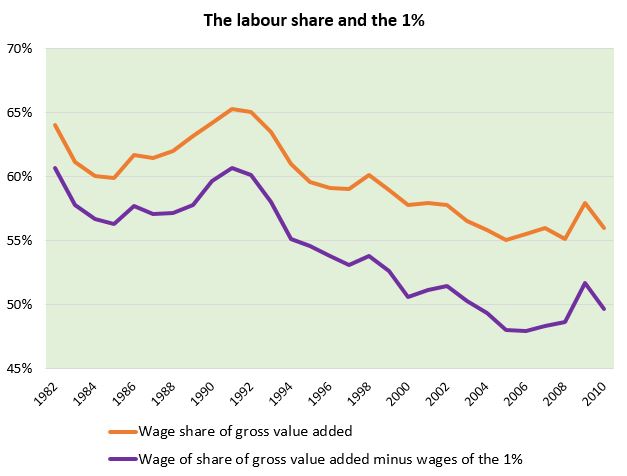In the last post I explored how magic numbers, such as a 90% debt-to-GDP ratio or a 2% inflation target, at once over-simplify and stifle economic policy debate. The role of magic numbers raises more general questions about “the rule of number” in economics. The math stick used to browbeat those who enter economic policy debates can be so effective in part because quantity has primacy over quality and means have primacy over ends in economic debate. Bear with me here, but to see this more clearly we should go all the way back to Aristotle. Things might get a bit abstract, but I’ll try my best to reign them in.
Aristotle asked what seem to be fairly naïve questions. For example, he ruminated on why it is that a particular number X pairs of shoes trades for one house. How is that two very different things – one for walking in and one for living in – are brought into a very specific quantitative relationship through human trade? Sometime towards the end of the 19th century, economics stopped asking such questions, precisely deeming them naïve and nonsensical in the process. A house “costs” five pairs of shoes because someone is willing to offer five pairs of shoes for another’s house. The first will get as much out of the house as the second from the shoes and exchange, usually via money, in a particular ratio allows them to come to this conclusion – simple and pat. End of story.
Not quite, says Scott Meikle, author of Aristotle’s Economic Thought. Ending the story here actually leaves ends completely out of the picture:
The consequence [of this commensurability is] that the question of ends cannot be formulated within economics. It is perhaps the most important question that can be asked in respect of economic matters, and whatever answer may be favoured, it does not reflect well on a theory if that theory is incapable of even formulating the question.
